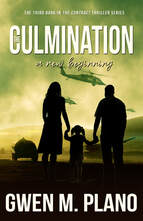
Last fall, I submitted a short reflection to the Rave Reviews Book Club for consideration in their anthology. My piece, One More Reason To Love Him, was selected. More than 30 authors participated in this venture which culminated in the RAVE SOUP FOR THE WRITER'S SOUL: An Anthology.
If you enjoy variety, as well as acclaimed and purposeful writing, this is a book for you. My short refection follows; it is my Valentine to you.
~ ~ ~ ~ ~ ~ ~
Shoulder to shoulder at street corners and nearby parking lots, thousands of us waited for the parade to begin. Children playfully waved little flags, gifted by local businesses, while the rest of us proudly wore our Red, White and Blue. It was Veterans Day 2013.
The crowd of spectators erupted in applause as a high school band marched past, playing John Philip Sousa’s “The Stars and Stripes Forever.” Then a vintage Ford Mustang convertible, carrying the Grand Marshal Larry Konzen, slowly followed their lead. Larry wore his WWII Army uniform, now decorated with the Purple Heart, Bronze Star and Combat Infantry Badge, and waved to the admiring crowd. The parade had officially begun.
One float after another passed by, but it was the streams of veterans, identified by branch of service and by military campaign, that caught my attention. Some had lost limbs, but those who were able-bodied marched in unison: the Army, the Navy, the Marines, the Air Force, the Coast Guard, men and women who had served their country—who had served all of us.
Larry had not wanted to be the Grand Marshal, explaining that there were many others more deserving than he. A modest man, he spoke of those who had served by his side against the Third Reich and did not return home. His military decorations were for them, he explained. This was a day of remembrance.
Months after the parade had passed, I noticed Larry at church, a quiet spoken, unassuming gentleman, respected by all. Well into his 90s, he was the first to reach out to help someone in need. Though I did not know him personally, I had become friends with his wife of sixty years—Margaret. Her fun-loving spirit endeared me to her and, in fact, she had become family to me.
Then one day, Larry approached me.
“Gwen, I read your book,” he said straightforwardly. “My wife gave it to me. And, I need to say something to you.”
I was stunned by his admission. I had forgotten that I had given my book to Margaret, and certainly did not think that she would share it with him. I was a little concerned about what he might say next. Did I offend him by something I wrote? I braced for the worst, but when I looked into his eyes, softened by age, I knew there was no reason for apprehension.
“I need to apologize to you,” he said, “on behalf of any man who would treat you poorly. I am sorry you suffered violence.” After pausing a bit, he continued. “I don’t know how you managed as you did, but I apologize again for what your former husband did.”
I did not know what to say. A man who had endured bodily harm in the European theatre during World War II was apologizing to me. I stumbled for words, and none were forthcoming. I hadn’t expected this. When he said he wanted to speak with me, I thought he might want to congratulate me for finally publishing a book. But no, he wanted to apologize for something he did not do.
Speechless, I stared in disbelief, and then finally offered a simple, “thank you.”
“You shouldn’t have had to experience that, Gwen. No woman should experience that. It’s not right!” He said firmly. Then clasping my hand for just a second, he smiled and took his leave.
When I saw Margaret a few weeks later, I mentioned that her husband had spoken to me.
“Do you know what he said to me?” I asked.
“No, I didn’t even know he talked to you. But now I’m interested,” she said, smiling mischievously. “What did he say? I hope it was something good.”
As I recounted the story and his apologies, her eyes watered a bit and then she responded with just one line:
“Oh,” she said, “One more reason to love him.”








 RSS Feed
RSS Feed